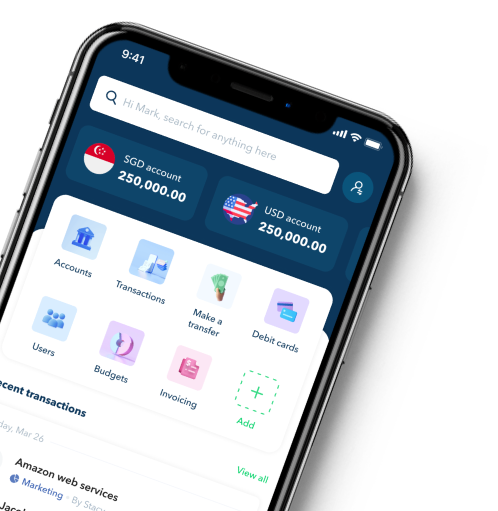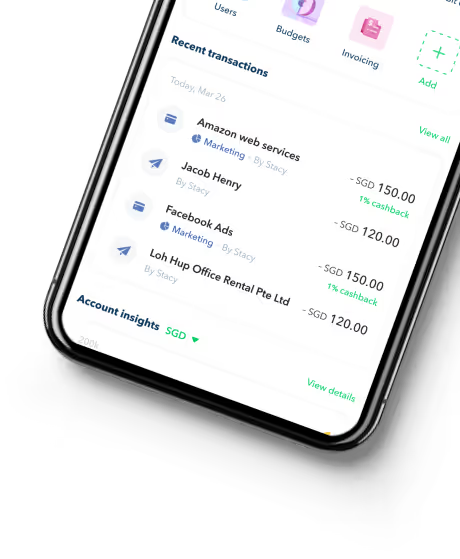Control spend before it happens with spend limits
Our intuitive tools allow you to set predefined spending limits, ensuring your budget stays on track and preventing overspending.

Trusted by 50,000+ modern businesses
Spending smarter is easier than ever
Prevent overspending
Set daily, weekly, or monthly spend limits tailored to your needs.
Customizable controls
Easily adjust limits for different expense categories or individual transactions.
Real-time alerts
Receive instant notifications when a spend limit is reached or a transaction is attempted.
Stay in control of your company spend
Effortless spend limit management
Easily set or update spending limits on Aspire virtual or physical cards directly from your dashboard.

Set spend limits to ensure you stick to your budget
No more overspending.
We’ll even ping you to stay on track. If necessary, adjust budgets and limits with a couple of clicks.

Flexible spend control
Customize the spend limit with card locks on specific merchants and options for daily, weekly, monthly, quarterly, yearly, or one-time refresh frequencies.

Role-based access
Admin users and Budget Owners can manage spend limits, ensuring that only authorized personnel make adjustments.

Hear it first from our customers


Gregory Van
CEO of Endowus


Holly Qian
Head of Finance, First Page Digital


William Chong
Finance Director at Glints




FAQs about spend limits and spend control
Spend controls: what are they?
Businesses must spend to increase their revenue; spend control is the process of monitoring and controlling these business spends that occur due to regular business operations.
How can businesses implement adequate spend controls?
Some common methods to implement effective spend control include using prepaid or debit corporate cards, using a centralised expense management platform, and defining clear approval flows and expense policies. These tools help businesses set adequate budgets and spend limits, which can help them control spending effectively.
Why are spend limits critical in spend control?
Spending limits can help businesses ensure financial discipline. It prevents unregulated spending, which helps businesses establish adequate spend controls and efficient cash flow management.
What types of controls can businesses establish using Aspire spend limits?
Businesses can set spend limits which are time-based (e.g. $10,000 for the month), expense category-based (e.g. $10,000 for marketing spends) or transaction-based (e.g. $1,000 for an office coffee machine). Businesses can set them up to issue once or recur on an ongoing basis (daily, weekly, monthly, quarterly or yearly). Businesses can also use it with ‘Merchant locks’ whereby the limits are available only for a list of specified merchants/vendors (e.g. FB ads, LinkedIn Ads, Google Ads, etc.). This ensures that any expenditures made by the employees are within budget and as per the defined policies.
How do spend limits work with budgets?
Spend limit is one of the many features available within budgeting. With Aspire, you can plan budgets across your organisation and then specify spending limits to control and track spending within a specific budget. This ensures that you never exceed the budget limits. Thus, you can control the budgets top-down, prevent overspending before it happens, and track everything in real-time.
With Aspire, you can:
- Set budgets across geographies, offices, departments, or teams. Create spend limits for more granular planning and tracking
- Customise spend limits for expense categories like business travel, vendor payments, office utilities, etc.
- Enable employees to use multiple corporate cards to segregate spends with ease by using Aspire’s unlimited virtual corporate cards.
- Track actual spending against your budgets and receive real-time notifications when the budget limit is reached, or a specific transaction is attempted.
Does Aspire provide real-time notifications for spend limits?
Yes. With Aspire you can get real-time notifications when a spend limit is reached or a transaction is attempted. Businesses also have real-time visibility on the budget amount utilization, which facilitates speedier adjustments and better financial planning.








